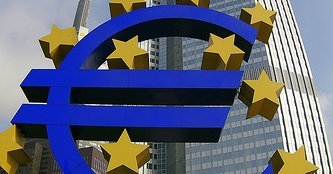Europe’s Scapegoat
The ECB statute proclaims that it is an autonomous institution charged with the task of maintaining low inflation. Its behavior in recent years has been exemplary, as acknowledged even by overseas analysts initially critical of its work. Europeans, instead, often give opinions blindly. We complain about price increases but we do not recognize that the economic world is completely changed and that we live in one of the regions with the lowest inflation.
The ECB therefore protects consumers from inflation, which is non-negotiable value, and provides a great service to the poorer strata of the population most affected by price increases. The autonomy of the ECB is also an important principle that must not be put into question. It defends us against the temptations of expenditure without coverage, including military spending, decided by governments and parliaments.
These days many people criticize the ECB because its rate policy would undermine economic growth. The critics often come from governments whose responsibility is to implement the choices that should produce economic growth. Governments, however, are struggling to make these choices and prefer to look for a scapegoat.
Let’s see then what European governments and European institutions could make promote growth, and leave the ECB, which is doing its job very well, alone.
Let’s see then what European governments and European institutions could make promote growth, and leave the ECB, which is doing its job very well, alone.
In March 2000 the Lisbon Council had outlined a plan to make Europe in 2010 the most competitive and dynamic economy in the world. This Europe will be capable of sustainable economic growth with more and better jobs and greater social cohesion. After eight years it must be acknowledged that the goals are not - and will not - be achieved as stated in the Kok report.
Backtracking for a moment, we see that the measures to boost growth in Europe had already been clearly defined in the Delors White Paper of 1993 . In this book is written that in order to achieve the knowledge society cooperation between the public and private sectors are necessary in order to: accelerate the construction of communication, transportation and energy networks, increase research related to information, biological and environmental technologies, investing in education and training. The study also addresses the goal of reducing the cost of non-qualified work by a sharp cuts in social contributions in order to promote employment and wages of the weakest layer of the population.
The financing of this great work would have entailed, over the intervention of private capital sources, three public channels: the EU budget, the loans from the European Investment Bank and the emission of Union bonds.
Falling short of success
It is necessary to say that despite all good intentions the results are particularly disappointing so far. The reasons for failure are mainly in the idea that this plan could be realized through coordination of national policies in Europe, the idea that, without any substantial modification of European institutions, we could proceed smoothly on the road indicated by the Delors’s plan and the Lisbon Strategy . Instead, it’s now clear that a development plan of this size and courage cannot be sustained in the absence of a clear political will expressed by a European government.
The individual national governments prefer, however, to continue to maintain the little power that remains, blaming once the Treaty of Maastricht, another time maneuvers of the ECB in order to make unclear to European citizens that the fault of stagnant economy lies mainly in their short-sighted conservation of national sovereignty.


Follow the comments: |
|
